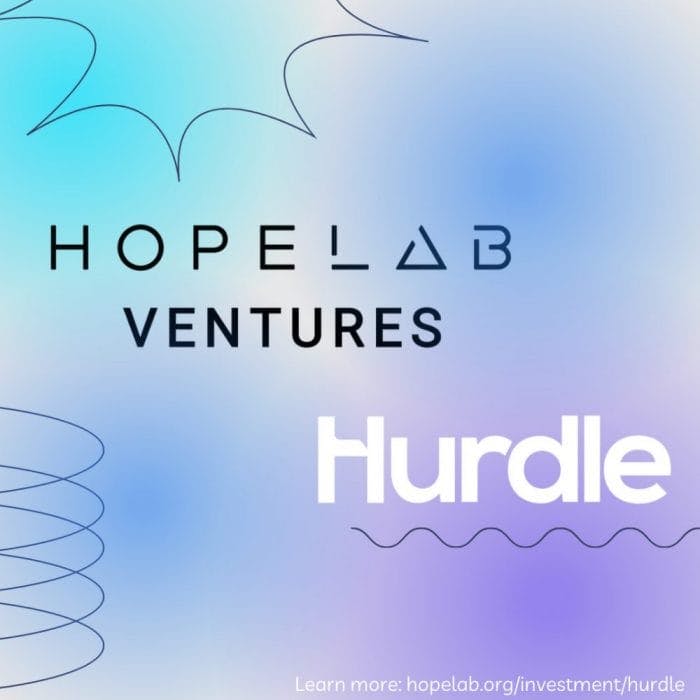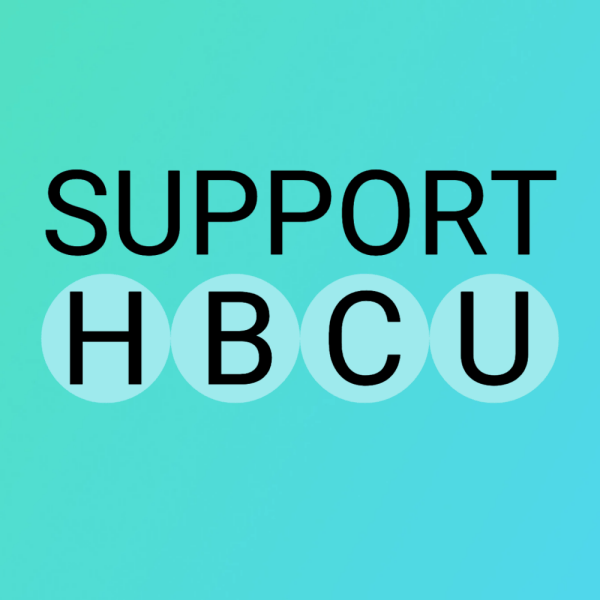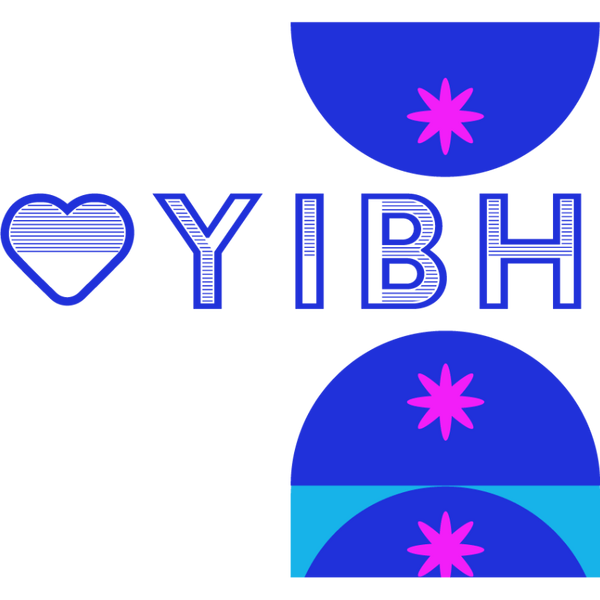We’re proud to announce that Hurdle has joined Hopelab’s new investment portfolio as a part of the social innovation lab’s recently announced impact fund
After closing a $5M seed round at the end of 2020, CEO and founder Kevin Dedner and the Hurdle team have continued to garner the attention of innovators and investors in the digital health space who are willing to rethink the mental healthcare system together. Most recently, Hopelab.
Hopelab is run by CEO, Margaret Laws, and is focused on impact investing and creating behavior-change tech to support the health and happiness of teens and young adults. They partner with other mission-aligned organizations including nonprofits, start-ups, foundations, accelerators, and health care providers to ensure that their co-created products are distributed to the young people and populations who need them most. Hopelab’s new impact fund—Hopelab Ventures—includes a portfolio of digital health companies dedicated to improving mental health and well-being outcomes and health equity for BIPOC and LGBTQ+ populations. Their aim? To move the needle in the health tech market toward investments that support earlier health interventions for adolescents and young adults.
We caught up with Margaret and Hopelab Ventures’ director, Erin Washington Sietstra to get their take on how together, we can improve health outcomes for BIPOC and LGBTQ+ populations.
Hurdle + Hopelab In Conversation
Hopelab uses research to draw hope out of unexpected places. Can you unpack this? How exactly does Hopelab make hope a tangible metric in digital health?
Margaret: Hopelab’s origin story was driven by Pam Omidyar, who founded Hopelab with the idea that giving young cancer patients a chance to blast cancer cells in a video game might help them fight their disease. The result was Re-Mission, a breakthrough video game scientifically proven to improve treatment adherence in young cancer patients by shifting attitudes to motivate positive health behavior. What was interesting about the spirit of this initial research was it unlocked an appreciation for a deeper set of motivation in humans––hope. It sparked a curiosity in the stories of young people’s health journeys and what we might learn from studying their hope and their motivations to get better.
Essentially, we reverse-engineer health. In our historical work, we identify the behavioral and psychological drivers of the health outcomes we ultimately want to improve, then build, test and create innovative products to create technologies that are engaging and sustainable, scaled to impact as many lives as possible. Finally, we partner with others who are mission-aligned to ensure that our products get into the hands of teens and young adults, and to track their impact over time. The addition of Hopelab Ventures allows us to invest in and contribute to the work of other mission-aligned entrepreneurs. We hope that we can leverage the work we’ve done over two decades to help accelerate and amplify the impact of significantly more ventures in this space than we could create on our own.
We’re driven by this notion that if we can engage in the kind of research that meets people where they are and taps into what motivates them toward healthy behaviors, then we can find new avenues and pathways to design systems that support them on their health journey.
What attracted Hopelab to Hurdle?
Erin: There were a number of macro trends at play when we decided to invest in Hurdle. Ultimately, we were sold on the company’s unique business model, and CEO and founder Kevin Dedner’s leadership, vision and ability to attract talent.
On the macro side you had the events of 2020. A pandemic that exacerbated health disparities across racial lines. The murder of Geroge Floyd and the racial justice protests that ensued also brought upticks in depression and anxiety within the black community, and specifically, young black people. At the end of 2019, the Congressional Black Caucus issued a report stating that the rate of black youth suicides was increasing faster than any other racial or ethnic group. With all of this in mind, we decided to focus a portion of our investments on startups and mission-driven founders who were developing solutions specific to the needs of black people and people of color. As we were looking at the field of organizations who had that stated mission, what was particularly compelling about Hurdle was their differentiated approach. Hurdle is not just a teletherapy platform. They have learned how to properly market to people of color, in addition to developing an entirely new therapeutic intervention and way of training therapists to meet the needs of BOPIC clients.
As you can imagine there just simply aren’t enough BIPOC therapists to meet the needs of BIPOC clients. And just having a BIPOC therapist doesn’t mean they will be equipped to talk about your own racial or cultural identity. What we loved about Hurdle is that they are training therapists to meet the urgent mental healthcare needs of underserved populations today.
Finally, at Hopelab, we draw on the best evidence, source insights from our own studies and those of colleagues and collaborators. Hurdle adheres to a similar level of rigor and quality in the evidence-based, data-driven research that informs their interventions.
How will your investment in Hurdle further the combined work of the two organizations?
Margaret: We have the very privileged position as an impact investor to be thinking about these investments for both their near-term impact on health challenges and their long-term influence on the digital health market. Hopelab is thinking systemically about how we can use these investments as a proof of concept for moving the market toward investing earlier in health interventions. Hurdle presents a terrific case study for this bilateral aim. They are addressing a large unmet need for culturally relevant mental healthcare for BIPOC populations, and their work will offer evidence for how earlier health interventions in adolescents and young adults can improve health outcomes in adult populations.
Our past partnerships set us up to be a strategic investor in Hurdle. In each of our partnerships we’ve worked with an organization or company that is taking a unique intervention to market. Our team of researchers and designers have spent a lot of time co-designing and co-creating with young people. This has been a highly sought-after capability for digital health startups like Hurdle that are interested in developing and refining a user experience that is relevant to young people, and particularly with BIPOC and LGBTQ+ young people. Hopelab can offer insights into the universal principles that drive authentic digital interactions with this population.
Erin: We started our external investments arm in the summer of 2020, but since our founding in 2001, we’ve taken risks and looked for challenging and meaningful projects and partnerships where we can have a profound impact. Hopelab and its partners are united by a common desire to catalyze social impact and empower people around the world.
On the investment side, we’re particularly focused on mental health and looking to partner with companies like Hurdle who are developing solutions that prioritize BIPOC and LGBTQ+ populations who have not had traditional access to healthcare and quality health outcomes. Our partnership with Hurdle represents an exciting opportunity to learn from their work, in addition to adding value in our support for the start-up’s B2B go-to-market strategy and their product roadmap. We’re excited to see how our partnership grows and evolves.





